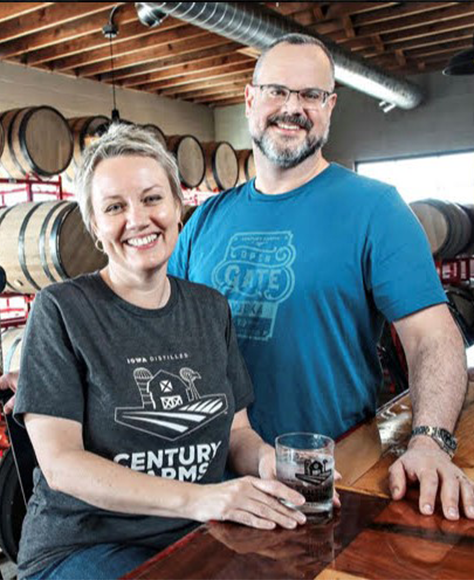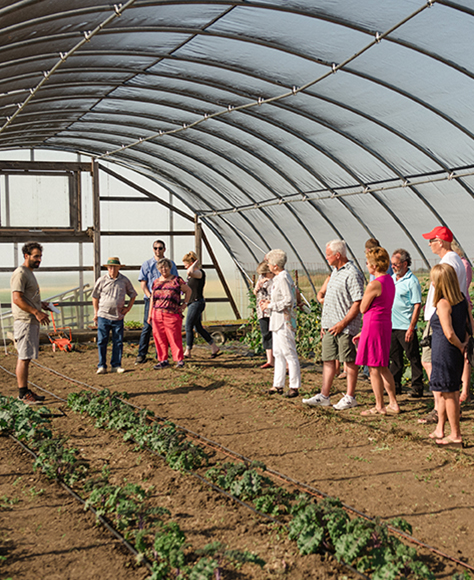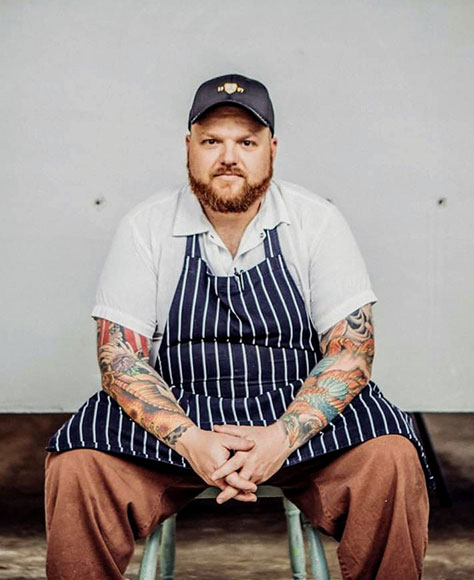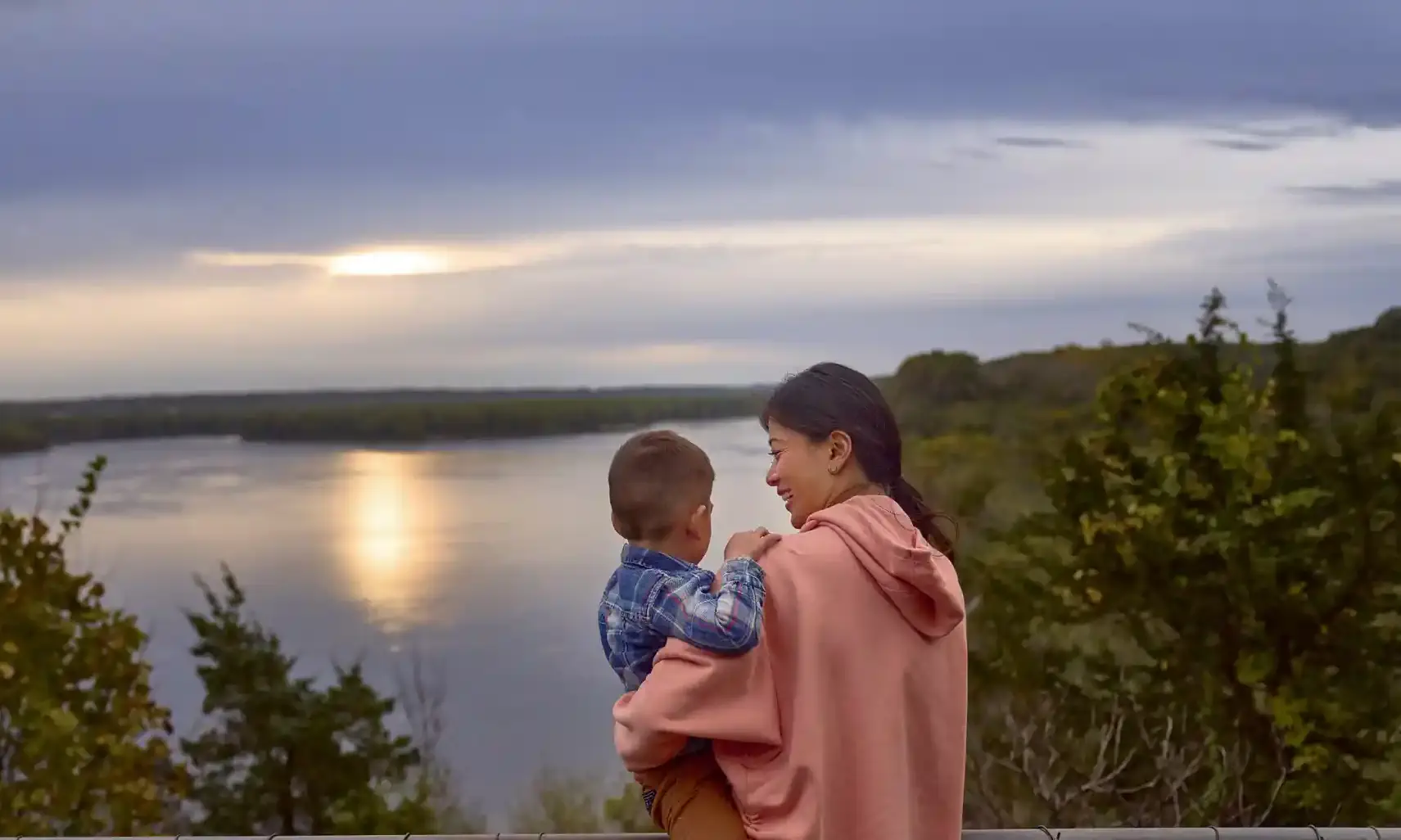Des Moines’ Dogpatch Urban Gardens isn’t your typical Iowa farm – and that’s by design. Owner Jenny Quiner shares her story of starting and growing a small business, how her particular background provided a unique perspective, and what resources she’s used to help her farm’s success.
Dogpatch Urban Gardens (DUG) may not be the first thing that comes to mind when you envision Iowa agriculture, but owner Jenny Quiner is okay with that. Located in Des Moines, DUG is an urban farm that grows and sells fresh produce, creates a line of salad dressings, hosts various community events, and even rents out its own Airbnb.
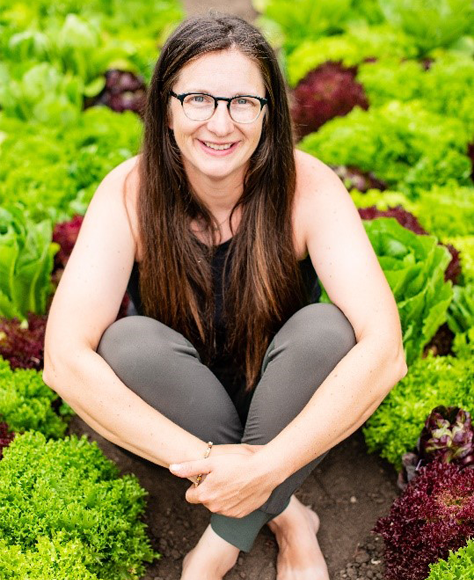
Quiner doesn’t exactly have a typical agricultural background either, growing up in Urbandale before earning a Bachelor of Arts in health promotions from the University of Iowa and a Master of Education in science content from Colorado State University. A nontraditional background is something that has served Quiner and her business well.
“Frankly, I think the fact that I didn’t have a farming background has worked to my benefit because it’s forced me to just learn, learn, learn,” Quiner said. “Take in information, absorb, connect, to reach out to people and I see it as a benefit because it’s just allowed me to build a really strong community.”
Though Iowa’s reputation as an agricultural leader is well-known, Quiner discovered her passion for farming in Colorado. After graduating from the University of Iowa, Quiner and her future husband, Eric, moved to Fort Collins for Eric’s band. After graduation, Quiner assumed she would be fielding job offers, which proved more difficult than she had envisioned due to the 2008 financial crisis.
“I ended up getting work at a health club and also at a local farm,” Quiner said. “Which, the fact that I got a job at a farm – I didn’t grow up in farming at all, so it’s a bit funny to look back and see how that worked, but that was the beginning of this idea that I actually like this and could see a future in this world.”
After several years in Fort Collins, they returned to Des Moines, where they wanted to start and raise their family. Eventually, Quiner and her husband created DUG in the fall of 2015 with a mission to promote health and nutrition, enhance community, foster environmental conservation and instill family values in their three young sons.
DUG, a Targeted Small Business in Iowa Economic Development Authority’s program, isn’t like most farms – Quiner loves hosting families, with events like Farmstand to Fork (where Des Moines’ top chefs prepare meals for guests) or a stay at the farm’s Airbnb.
“People get to stay in this beautiful old farmhouse and enjoy the beauty of the farm,” Quiner said. “That has been so well-received, we’ve had nothing but great guests, and we have return guests that come for the holidays.”
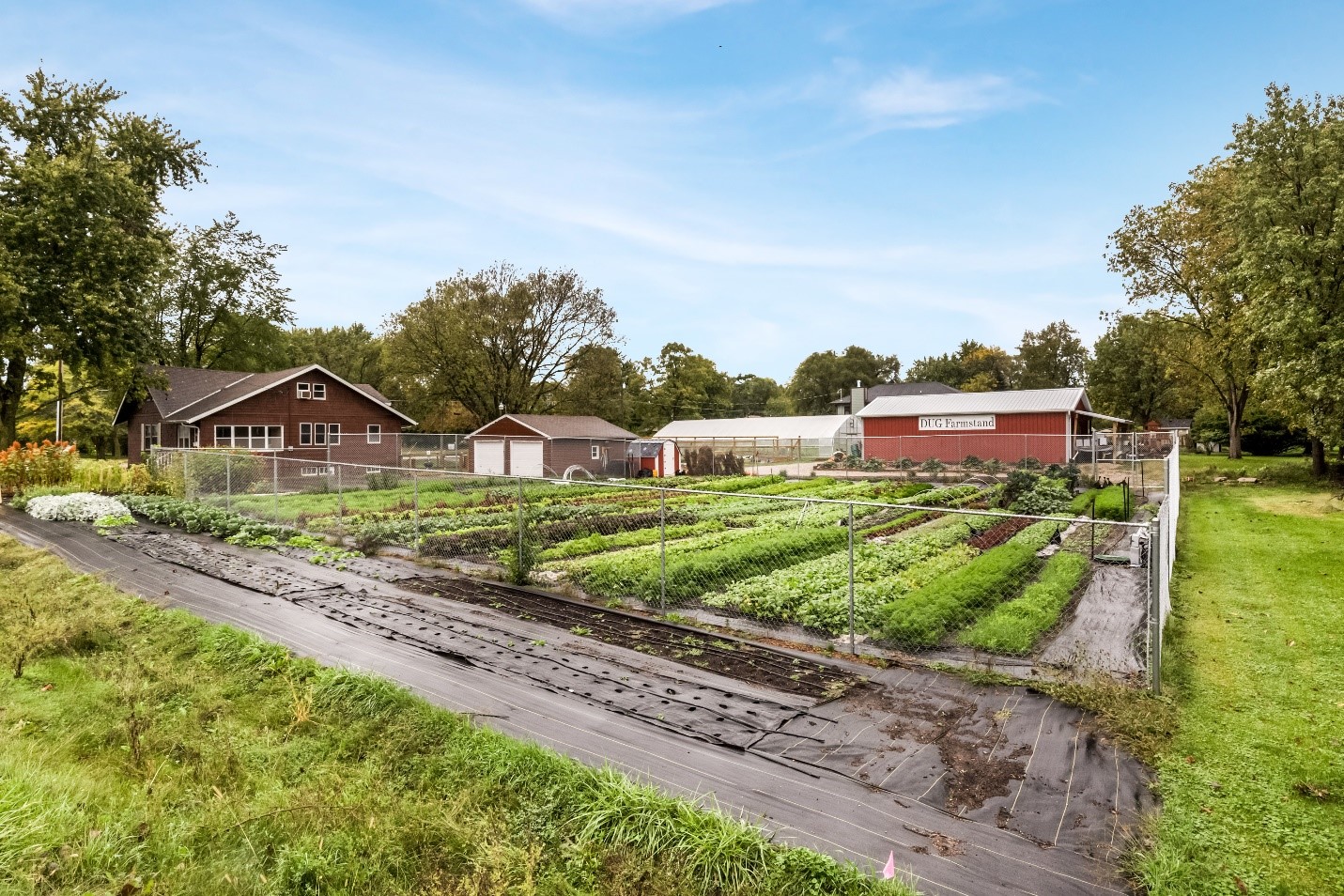
The DUG FarmStand is another differentiating factor from most farms. The FarmStand sells produce grown at the farm, as well as meat products, cheeses, eggs, fruits, grains, honey, fresh-cut flowers, salsa, jams and more items produced on local, small-scale farms.
“I think having that store and being able to bring people to the farm is a huge advantage to us because many families with young kids want them to experience farming and food, so we allow that option to be there for families,” Quiner said.
One area that DUG has really grown in is their salad dressings. Through Hy-Vee’s “Best of Local Summit,” Quiner pitched to two Hy-Vee executives and was selected as one of 12 business owners who would have their products picked up. “We have three dressings right now; I’m always in my kitchen, even at home, experimenting and thinking of new products,” Quiner said. Additionally, through Hy-Vee’s “Fast to First” program, Quiner’s salad dressings are sold at more than 150 Hy-Vee locations.
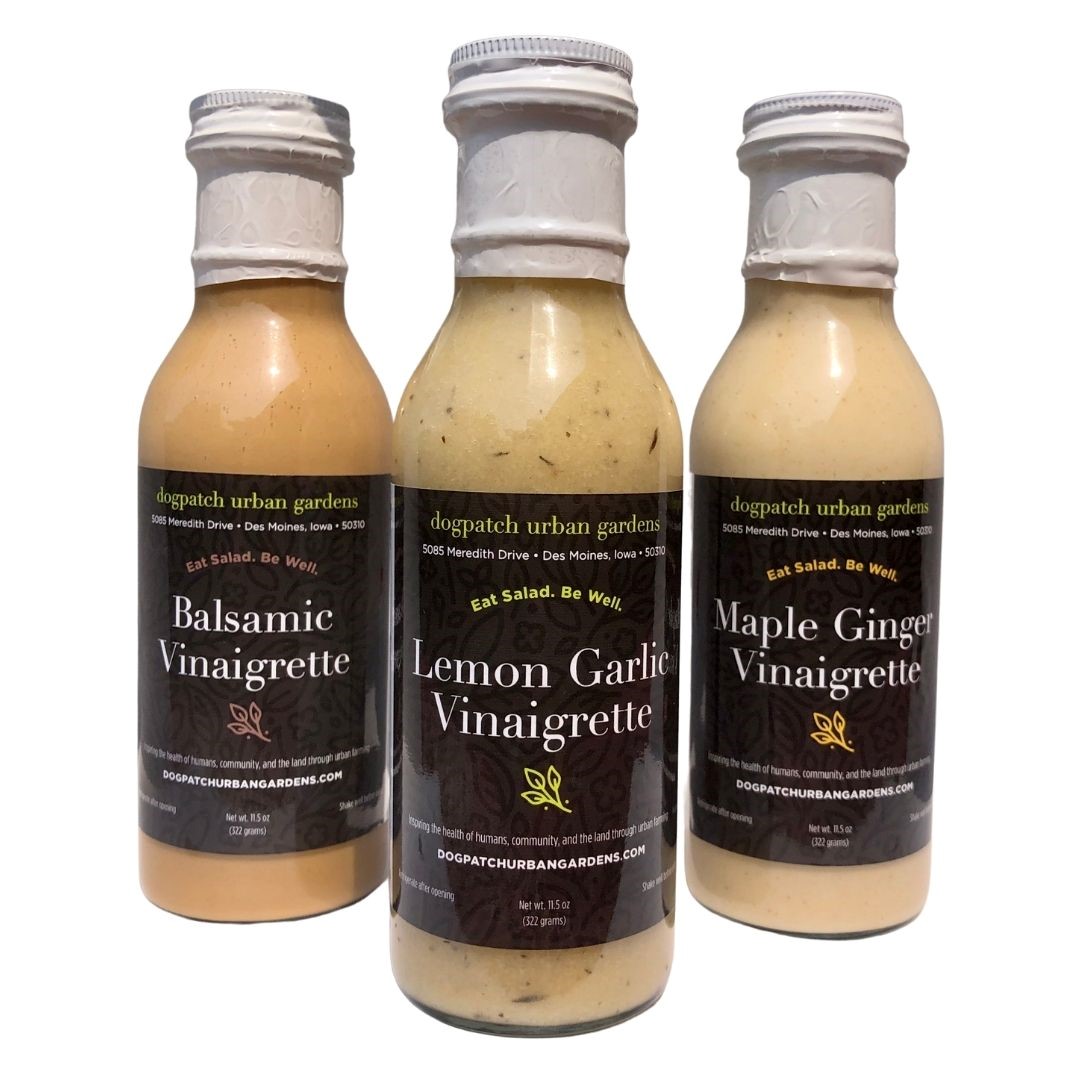
“It’s kind of crazy to think about what we were doing in year one to where we are now. Each season has changed, each year we’ve grown,” Quiner said. “We grow in terms of how much land we’re growing on, but also in how we’re reaching customers, we’re growing in what we offer in our farm stand.”
The expansion has come with the support of the community. Quiner mentioned several members of the community who help with DUG’s industrial needs, including wood milling, electrical work and more, in addition to the many visitors the farm receives.
“The neighborhood itself is called the Dogpatch, and that’s why we named the farm Dogpatch Urban Gardens, to just identify with our community,” said Quiner. “We even now see people who put their homes for sale on the market, and they’ll use us as a selling point, like ‘two blocks away from Dogpatch Urban Gardens,’ so I think it’s really united the community.”
